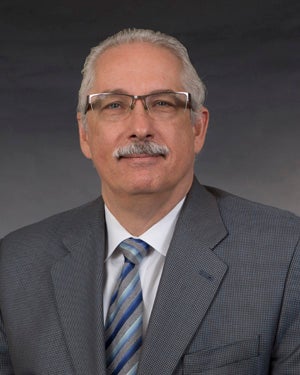UCAR praises passage of Weather Research and Forecasting Innovation Act
Unanimous vote by Congress underscores importance of weather research to nation
Apr 4, 2017 - by Staff
Apr 4, 2017 - by Staff
Today President Donald Trump signed H.R. 353, the "Weather Research and Forecasting Innovation Act of 2017," into law.
BOULDER, Colo. — With the unanimous passage of legislation to improve weather research and prediction, Congress has taken a major step today toward strengthening the nation's resilience to severe weather and boosting U.S. economic competitiveness.
"This landmark legislation will save lives and property while providing business leaders with critical intelligence," said Antonio J. Busalacchi, president of the University Corporation for Atmospheric Research (UCAR). "Today's bipartisan vote underscores the enduring value of scientific research to our nation."
The Weather Research and Forecasting Innovation Act is the first major weather legislation since the early 1990s. It calls for more research into subseasonal to seasonal prediction, a priority for business and community leaders who need more reliable predictions of weather patterns weeks to months in advance. The bill also will strengthen short-term weather forecasts and smooth the way for research findings to be adopted by forecasters and commercial weather companies.
 Antonio J. Busalacchi. (©UCAR. Photo by Carlye Calvin. This image is freely available for media & nonprofit use.)
Antonio J. Busalacchi. (©UCAR. Photo by Carlye Calvin. This image is freely available for media & nonprofit use.)
Improved short- and long-term weather predictions have major implications for public safety and the economy. The nation experienced 15 weather and climate disasters last year that cost $1 billion dollars or more, including tornadoes and widespread flooding that left dozens dead. Even routine weather events can affect transportation, supply chain management, consumer purchasing, and other sectors, with a collective impact of hundreds of billions of dollars on the U.S. economy.
Scientists at the National Center for Atmospheric Research, which is managed by UCAR on behalf of the National Science Foundation, have estimated that weather forecasts provide an annual benefit to the American public of more than $30 billion, compared with about $5 billion spent on generating U.S. weather forecasts.
"Research into the atmosphere provides an enormous return on investment," Busalacchi said. "Weather affects all of us, and being able to make plans based on forecasts of likely weather conditions is literally worth many billions of dollars to households and businesses."
Decades of investments by federal agencies in weather research, observing systems, computer models, and supercomputing resources are dramatically advancing our understanding of how our atmosphere works. Five-day weather forecasts now are as reliable as two-day forecasts used to be, hurricane forecasts will soon extend out to seven days, and scientists are starting to find ways to project certain events, such as droughts and heat waves, a month or longer in advance.
The Weather Research and Forecasting Innovation Act is designed to strengthen:
The legislation (HR 353) was introduced by Rep. Frank Lucas of Oklahoma and Sen. John Thune of South Dakota. Co-sponsors include Sen. Brian Schatz and Reps. Jim Bridenstine, Lamar Smith, Dana Rohrabacher, Chris Stewart, Aumua Amata Coleman Radewagen, and Suzanne Bonamici.
The bipartisan bill authorizes spending increases at the National Oceanic and Atmospheric Administration (NOAA) for weather research focused on observations, models, and more powerful computing resources. It authorizes spending for COSMIC-2 an innovative suite of micro-satellites that will provide critical atmospheric observations, with multiagency support provided by UCAR, NOAA, the U.S. Air Force, the National Science Foundation, and Taiwan's National Space Organization. The legislation also expands commercial opportunities to provide weather data while increasing the efficiency of NOAA's weather satellite programs.
"We are very appreciative of the work by Senator Thune, Representative Lucas, and the many co-sponsors in the House and Senate," Busalacchi said.
"As the United States faces an increasingly competitive global marketplace, it needs more accurate and longer-term weather forecasts," he added. "At UCAR we look forward to working with NOAA, the Department of Defense, and the other federal agencies; the private sector; and the university community to build off of the National Science Foundation investment in basic research in this essential area."